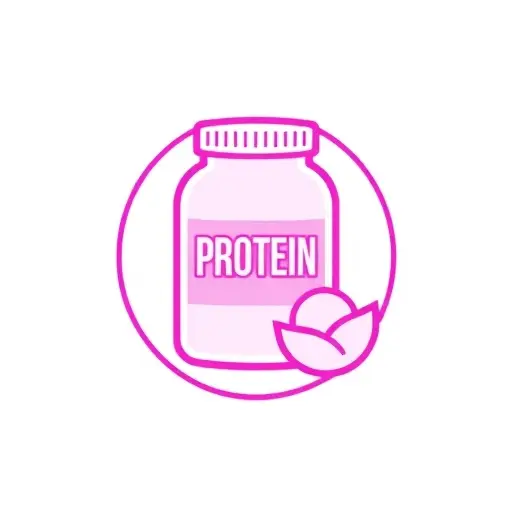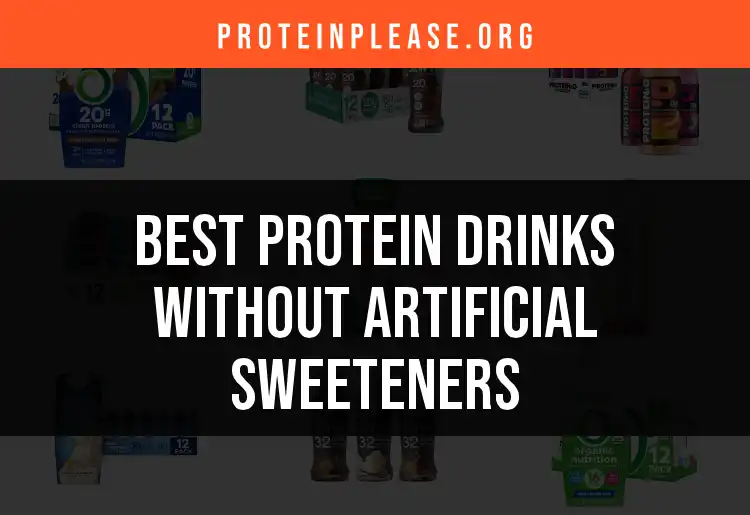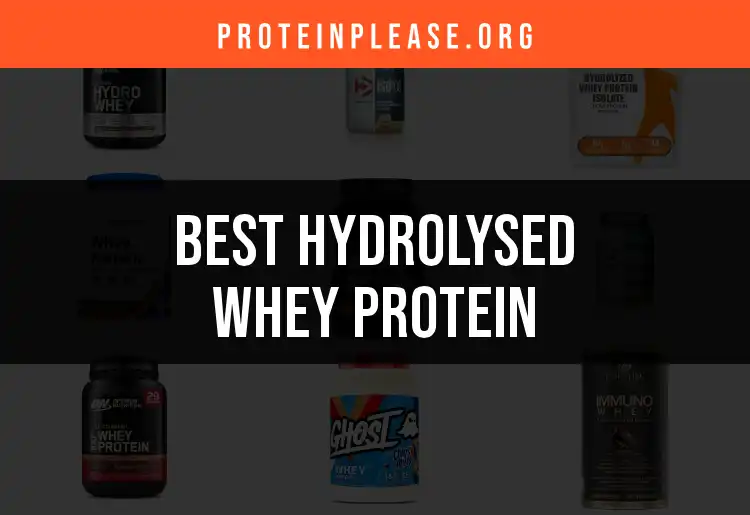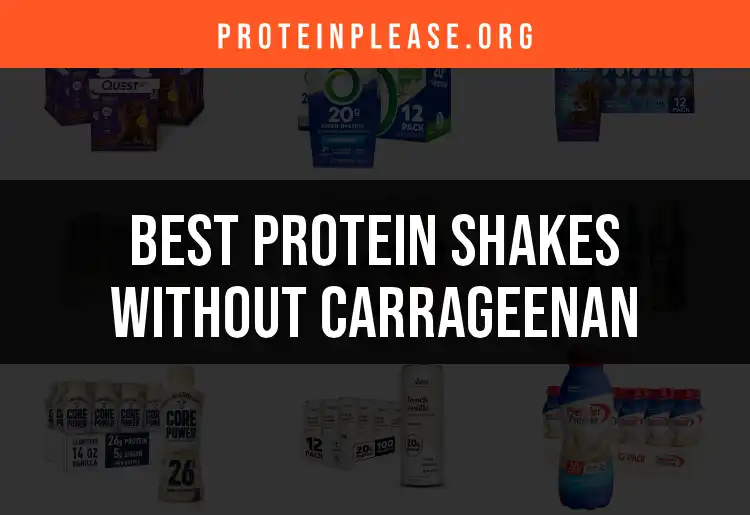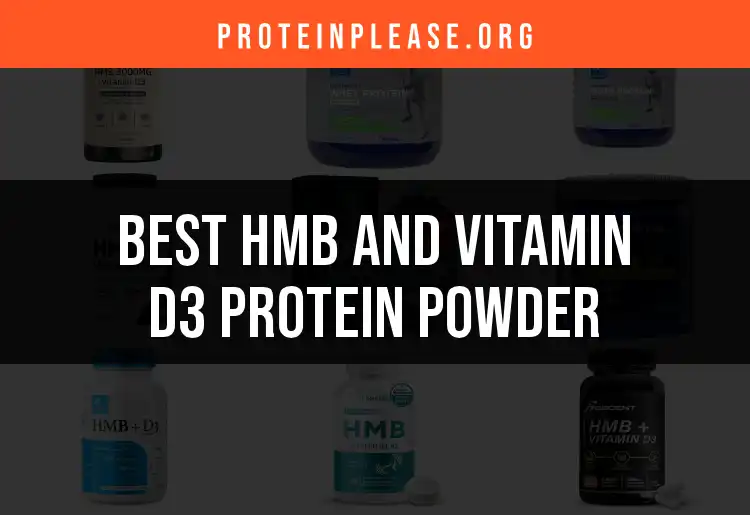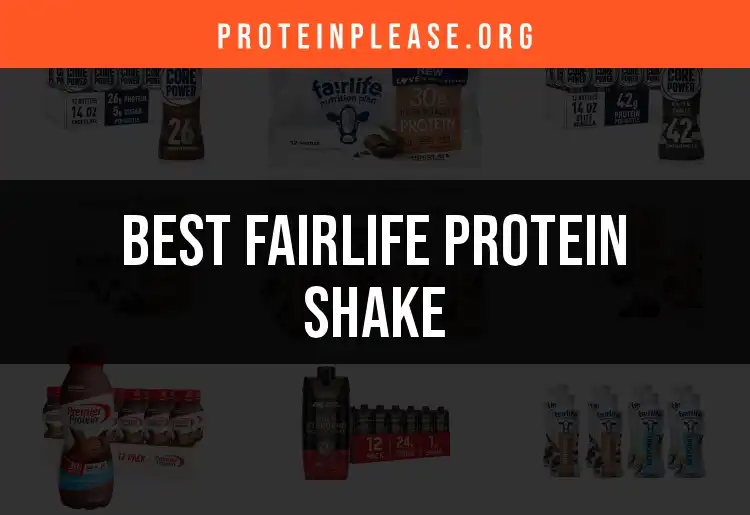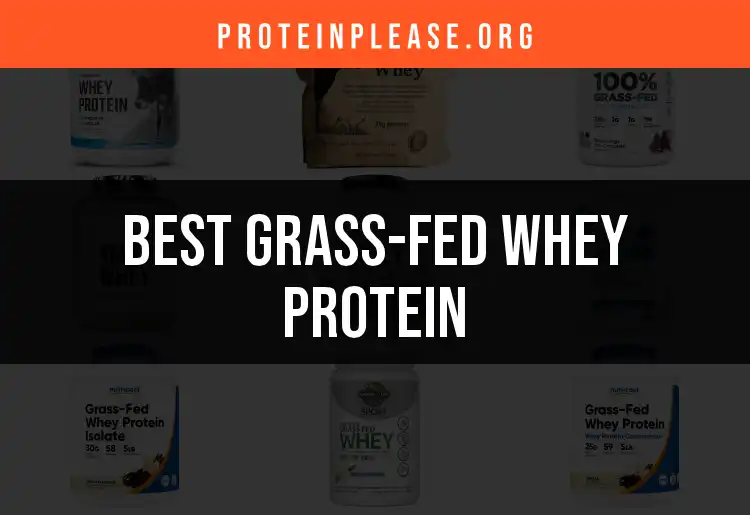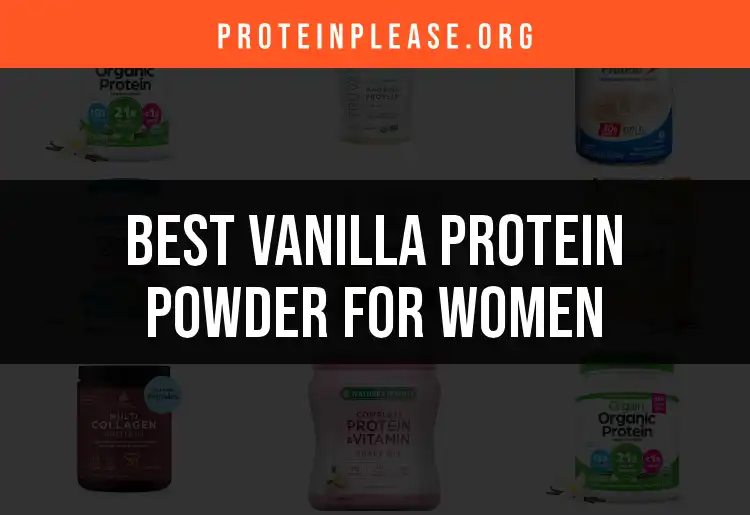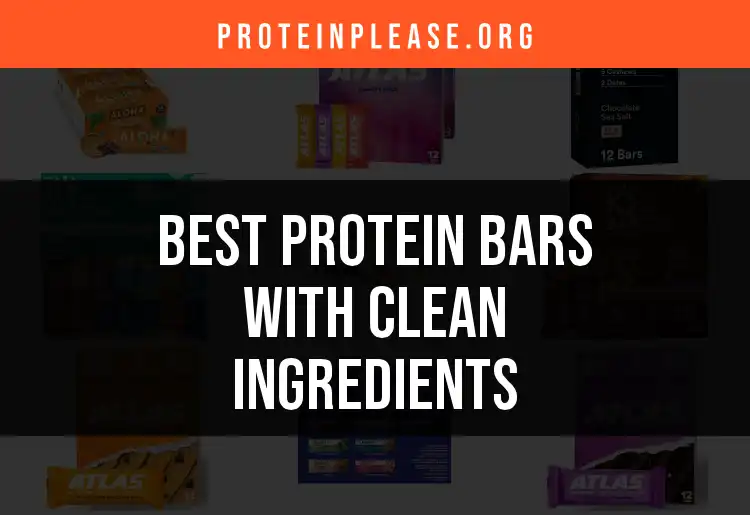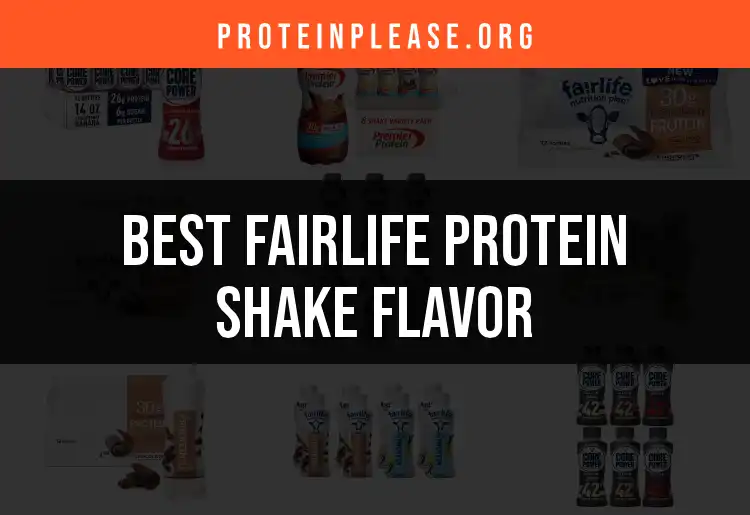Introduction to Protein
Protein forms the cornerstone of healthy living, playing a crucial role in building muscle, repairing tissues, and supporting vital bodily processes. Whether your goals involve weight management, muscle gain, or supporting special dietary needs, understanding how protein works and how to integrate it into your lifestyle is essential.
What makes protein so important?
Protein is a macronutrient responsible for countless functions: from the structure of your skin and muscles to the creation of hormones and immune system components. Unlike carbohydrates and fats, our bodies cannot store protein, making regular intake vital.
How Protein Powers Weight Management and Wellness
Protein doesn't just build muscle; it helps regulate appetite, supports metabolic processes, and even helps balance blood sugar. Choosing the right protein source can optimize your progress whether you’re seeking to lose weight, gain strength, or simply stay healthy.
Choosing the Right Form for Your Needs
With so many protein options, it's natural to feel overwhelmed. From gluten-free protein powders to specialized nut-free protein bars, there’s a product for every need, taste, and restriction. This guide covers everything from the science behind protein to the latest innovations in dietary supplements.
What Is Protein?
Proteins are large, complex molecules made up of smaller units called amino acids. Think of amino acids as the building blocks that snap together in precise arrangements, dictating how the protein behaves and functions in your body.
Structure and Function of Amino Acids
There are 20 different amino acids. Imagine them as different letters that, when combined, spell countless "words"—each word being a unique protein.
- Essential amino acids must come from your diet because your body cannot produce them.
- Non-essential amino acids can be synthesized by your body from other nutrients.
Essential vs. Non-Essential Amino Acids
Of the 20 amino acids, 9 are essential. Consuming a variety of protein sources ensures you get enough of these crucial nutrients. High-quality protein powders, such as beef-based options, typically provide all essential amino acids.
Muscle Growth, Recovery, and Maintenance
Protein is the primary driver behind muscle protein synthesis. When you exercise, you create tiny muscle tears; protein repairs and builds them back stronger. This process also supports recovery and helps maintain lean muscle mass, even as you age or reduce calorie intake for weight loss.
How Much Protein Do You Need?
Protein requirements depend on your age, activity level, goals, and health status. While a sedentary adult may only need around 0.8 grams per kilogram of body weight, athletes or those seeking weight loss often require more.
Understanding Daily Recommendations
- Sedentary adults: 0.8g per kg of body weight
- Active individuals/athletes: 1.2–2.0g per kg
- Older adults: 1.0–1.3g per kg to help prevent muscle loss
Individuals with special needs, such as those seeking gluten-free options or IBS-friendly supplements, can find tailored protein products aligned with their requirements.
Factors Affecting Protein Requirements
Intensity and frequency of workouts, overall calorie intake, medical conditions, and age are all factors that can alter how much protein you need.
Protein Absorption and Utilization
The body can't absorb unlimited protein at once. Spacing protein intake throughout the day (especially after exercise) maximizes muscle protein synthesis. Supplements like cinnamon protein powder can make it easier to distribute protein evenly in your meals.
Signs of Deficiency or Excess
Symptoms of insufficient protein:
- Muscle wasting or weakness
- Brittle hair or nails
- Slow wound healing
Symptoms of excessive intake:
- Digestive issues (especially with low-quality powders)
- Possible kidney strain in those with preexisting conditions
Regularly including varied sources like egg white protein powder or plant-based protein shakes helps maintain balanced intake.
Protein in the Context of Weight Management
Protein offers unique advantages for those managing their weight:
Appetite Control and Satiety
Protein-rich foods and shakes promote feelings of fullness, reducing overall calorie intake. Swapping a sugary snack for a gluten-free protein bar can deter unnecessary eating.
Thermic Effect of Protein
Protein burns more calories during digestion than fats or carbs. This thermic effect means your body works harder to process protein, enhancing calorie expenditure.
Lean Mass Preservation
Maintaining or increasing protein intake is critical when dieting. It helps preserve lean muscle mass while encouraging fat loss—a reason why products like beef protein powder and egg protein powder are favorites among fitness enthusiasts.
Incorporating Protein into Calorie-Controlled Diets
Choose high-quality supplements and natural foods, such as non-dairy protein shakes or protein water mixes, to meet your protein goals without excessive calories.
Types of Protein Powders and Supplements
The supplement aisle can be confusing, but understanding the main types can help you make informed choices.
Animal-Based Protein Options
- Whey Protein: Fast-digesting and excellent for post-workout recovery.
- Casein Protein: Slower-digesting, suitable for nighttime use.
- Egg White Protein: Lactose-free and rich in essential amino acids; explore healthy egg white protein powder options.
- Beef Protein Powder: Perfect for those allergic to dairy or seeking a paleo-friendly source. Find out more about top beef protein powders.
- Egg Protein Powder: Combines whole egg nutrients and is highly bioavailable. Explore the best egg protein powders on the market.
Plant-Based and Specialized Proteins
- Non-Dairy Protein Shakes: Perfect for vegans, lactose intolerance, or those seeking variety. Check out leading non-dairy shake options.
- Gluten-Free Protein Powder: Address dietary restrictions without sacrificing nutrition using recommended gluten-free protein powders.
- Gluten-Free Protein Bars: Portable, convenient snacks aligning with gluten-free diets. Check out gluten-free protein bar recommendations.
- Nut-Free Protein Bars: Ideal for those managing nut allergies. Discover the safest nut-free protein bars.
- Cinnamon Protein Powder: Adds flavor and health benefits. Explore top cinnamon-flavored protein powders.
- Protein Powder Without Stevia: Many people prefer supplements without strong-tasting sweeteners. Browse protein powders without stevia.
- Protein Powder at Trader Joe's: Affordable and accessible. Review the best protein powders you can buy at Trader Joe's.
- Legion Protein Flavor: Legion’s fan-favorite flavors are highly rated. See the best Legion protein flavor choices.
Specialty Proteins for Specific Needs
- Protein Powder for IBS: Formulated for digestion sensitivity. Explore the best IBS-friendly protein powders.
- Protein Supplement for Wound Healing: Supports tissue repair in recovery. Discover top choices for wound healing protein supplements.
- Protein Powder for Buttocks Growth: Targeted for muscle building in specific areas. Find suggestions to help grow and shape your glutes.
- Coffee-Flavored Protein Powder: For an energy boost and coffee taste. Explore the best coffee-flavored protein powder brands.
- Protein Powder for Dogs: For canine muscle and coat health, see protein supplement options for dogs.
- Protein Water Mix: Lightweight, hydrating, and easy to mix; learn about leading protein water products.
Specialized Protein Types and Ingredients
Egg White Protein Powder
Egg white protein stands out as a lactose-free, highly bioavailable option. It is low in fat and carbs while providing all essential amino acids.
- Compared to whey or vegan options, it’s gentle on digestion and ideal for baking.
- For specific brand and product recommendations, check our guide to egg white-based protein powders.
Beef Protein Powder
Unlike dairy-based proteins, beef protein is free of lactose and often chosen for its unique amino acid profile. It can help with muscle gain, recovery, and is favored by paleo and keto dieters.
- For further insights, see our recommendations for beef-derived protein powders.
Protein Powder Strawberry
Strawberry-flavored mixtures offer a blend of nostalgia and deliciousness, perfect for shakes or smoothies.
- Check out the most popular strawberry protein powders for top picks.
Cinnamon Protein Powder
Adding cinnamon to your protein intake introduces antioxidants and can help stabilize blood sugar.
- See our curated list of the best cinnamon protein supplements.
Coffee-Flavored Protein Powder
A caffeine-protein combo makes mornings easier while keeping calories in check.
- Dive into our review of coffee-flavored protein powders if you're a coffee lover.
Dietary Considerations and Allergens
Food intolerances and allergies are common, making it vital to choose the right protein products.
Gluten-Free and Dairy-Free Options
If you avoid both gluten and dairy, shop for the best gluten-free and dairy-free protein bars. These checks both boxes, so you don’t have to compromise.
Nut-Free Protein Bars
Nut allergies require extra care. For a safe and satisfying option, discover recommended nut-free protein bars.
Protein for Special Diets
Many protein powders are now formulated to fit vegan, paleo, or keto regimens. Always review labels carefully—and when in doubt, consult resources like our non-dairy shake recipes and suggestions for guidance.
Reading Labels for Hidden Allergens
Watch out for cross-contamination and hidden ingredients. Even supplements labeled “free from [allergen]” should be scrutinized for manufacturing details. For complete peace of mind, consider trusted gluten-free protein brands.
Protein Supplements for Specific Populations and Conditions
Not all protein users are athletes. Dietary restrictions, medical needs, and even pets can benefit from targeted supplementation.
Protein for IBS
Those with irritable bowel syndrome need gentle, low-FODMAP protein sources. Read about specialized protein powders for IBS sufferers.
Protein Supplement for Wound Healing
Adequate protein is critical for post-surgical and wound recovery. Nutritionally dense products help restore tissue. Find suggestions among our top protein supplements that support wound healing.
Protein Powder for Dogs
Active and aging dogs may need extra protein for muscle and coat health. Learn about safe, vet-approved protein powders for dogs.
Protein for Muscle Gain and Bodybuilding
Athletes benefit from fast-absorbing forms like whey and specialized products like egg protein powder.
Protein for Elderly and Age-Related Muscle Loss
Aging adults should prioritize highly digestible, complete proteins. For suggestions, see our reviews of high-quality, gentle protein powders and gluten-free options.
Innovations and Accessories in Protein Consumption
Electric Protein Shakers
Gone are the days of clumpy shakes. The best electric shakers offer a smooth, lump-free drink in seconds and come in various styles for home or on-the-go use.
Protein Water Mixes
Protein water is a refreshing way to rehydrate while meeting your protein targets. Learn about the top protein water mixes available.
Creating Delicious Protein Shakes
Personalize shakes by adding fruits, nut butters (if tolerated), cinnamon, or cold-brew coffee. For inspiration, check our pages on strawberry-flavored and coffee-infused proteins.
Combining Different Proteins
Experiment with blends—for example, combining egg white protein with beef-based supplements—to balance digestive tolerance, flavor, and performance goals.
Tips for Choosing the Best Protein Powder
Quality Matters:
Opt for clean labels with minimal additives. Refer to our roundups for protein powders without stevia and allergen-conscious picks.
Flavor and Texture:
Your supplement must be enjoyable to build consistency. Review the top Legion protein flavors and Trader Joe’s picks.
Ingredient Transparency:
Carefully check for third-party testing and certifications (especially with gluten-free products).
Budget:
Affordable doesn’t mean low-quality—our Trader Joe’s protein powder recommendations highlight blended value and nutrition.
Label Literacy:
Scan for unnecessary additives and hidden sugars. Choose options that list amino acid profiles, as with our egg white protein guide.
Advanced Topics in Protein Supplementation
Bioavailability
Not all protein sources are digested or absorbed equally. For highly bioavailable options, see our recommendations for egg protein supplements and beef protein powders.
Timing
The best results often come from consuming protein within 30-60 minutes after exercise. Consider ready-to-mix options and easy shakers for convenience.
Protein Cycling and Periodization
Athletes sometimes alter their daily protein intake depending on their training or competition schedule. Experiment with different types, including novel flavored powders and coffee blends, to enhance adherence.
Combining Proteins for Enhanced Benefits
Blend fast and slow proteins or animal and plant sources to maximize muscle synthesis and sustained energy. Our guides to nut-free bars and non-dairy shakes can help you get started.
Innovations in Plant-Based Proteins
New technologies are improving the taste, texture, and nutritional quality of plant-based protein supplements. For more, explore our non-dairy protein shake recommendations.
Practical Recipes and Usage Ideas
Protein Shake Recipes
Try a classic blend:
1 scoop strawberry protein powder (see our review of [top strawberry options](/best-protein-powder-strawberry))
1 cup unsweetened almond milk
½ frozen banana
Handful of spinach (optional)
For a morning boost, incorporate coffee-flavored protein.
Protein Bars and Snacks
Whip up simple, allergen-friendly treats with gluten-free protein bar mixes or nut-free options.
Easy Add-Ins and Mix-Ins
Spice up your standard shake with a dash of cinnamon protein powder, or experiment with Trader Joe’s unique flavors.
Hydrating Protein Water
Combine protein water powder with lemon or berries for a summer-ready drink.
Personal Protein Routine
Create a schedule:
- Morning: coffee flavored protein shake
- Post-workout: egg white protein smoothie
- Snack: gluten-free protein bar
Common Questions about Protein Supplements
Are Protein Powders Safe?
Generally, yes—especially when sourced from reputable brands and used as directed. Always be wary of supplements with additives you can’t identify. For sensitive systems, explore protein powders tailored for IBS.
Can You Overconsume Protein?
Very high intake can tax the kidneys in susceptible individuals. For balanced, moderate options, see our non-dairy product reviews.
How Long Does It Take to See Results?
With consistent use and exercise, muscle tone, strength, or weight changes typically appear within several weeks. Look for supplements specifically designed for muscle growth.
Are There Any Side Effects?
Some people experience digestive discomfort, particularly with low-quality or highly processed powders. See our egg protein powder guide for options less likely to cause issues.
Can Vegetarians and Vegans Use Protein Powders?
Absolutely—many are plant-based or egg-derived. Explore the growing world of non-dairy protein shakes and gluten-free vegan bars for animal-free choices.

